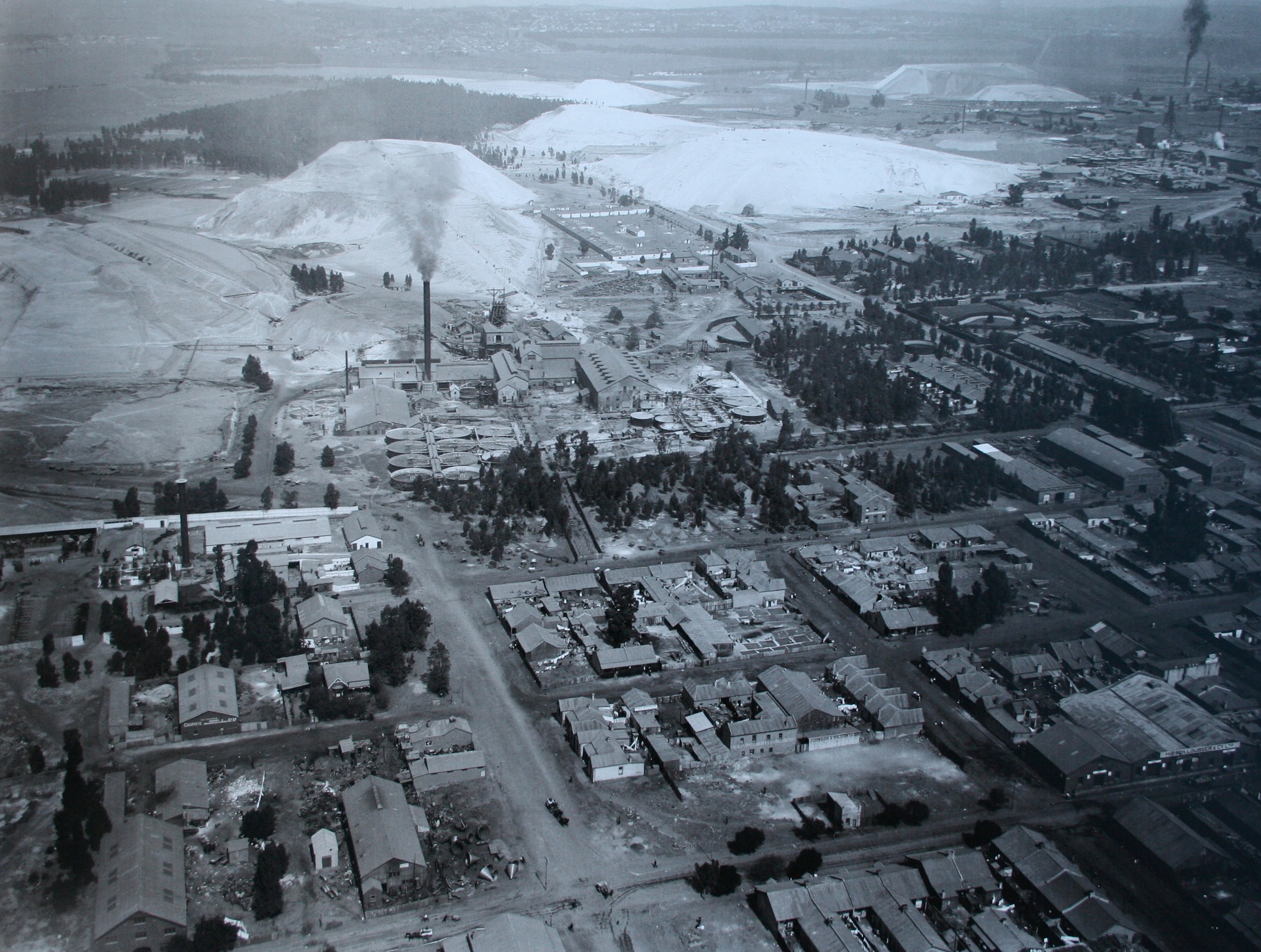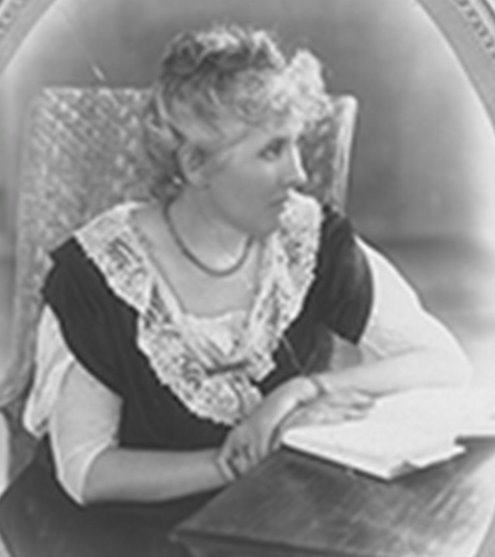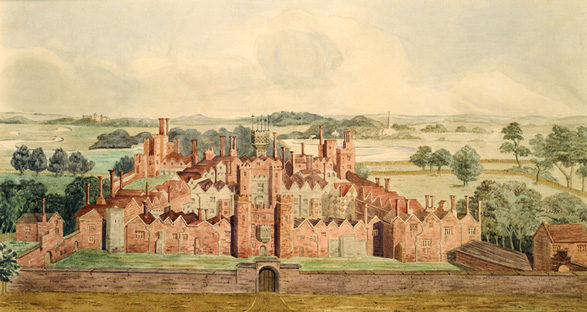|
Stewart Stockman
Sir Stewart Stockman MRCVS (1869–1926) was a 19th/20th century British veterinarian who served as Chief Veterinary Officer to the Ministry of Agriculture and as President of the Royal College of Veterinary Surgeons for the year 1923/24 and President of the National Veterinary Association. He was an expert on foot and mouth disease. Life He was born on 27 September 1869 in Wellington Street in Leith (the harbour area of Edinburgh) the fourth son of William John Stockman (d.1908), a flour importer, and his wife. He was younger brother to Ralph Stockman. The family moved to a larger house at 2 Bonnington Place in 1870. He was educated at the Royal High School, Edinburgh then studied Veterinary Science at the Royal Veterinary College on Clyde Street in Edinburgh under Prof Thomas Walley. He did postgraduate studies in animal pathology in both Paris and Brussels and returned to Edinburgh in 1892 as Professor of Pathology and Bacteriology at his alma mater. After seven years at ... [...More Info...] [...Related Items...] OR: [Wikipedia] [Google] [Baidu] |
Chief Veterinary Officer (United Kingdom)
The Chief Veterinary Officer (or CVO) is an official in the British government, who is head of veterinary services in the United Kingdom. Wales, Scotland and Northern Ireland also each have a Chief Veterinary Officer. List of post holders for the United Kingdom The following people have held the post of Chief Veterinary Officer for the United Kingdom: *Alexander Curtis Cope, 1893–1905 *Sir Stewart Stockman, 1905–1926 *Sir James Joseph Ralph Jackson, 1926–1932 * Sir Percy John Luxton Kelland, 1932–1938 *Sir Daniel Alfred Edmond Cabot, 1938–1948 *Sir Thomas Dalling , 1948–1952 *Sir John Neish Ritchie, 1952–1965 *Mr John Reid, 1965–1970 *Mr A G Beynon, 1970–1973 *Mr A C L Brown, 1973–1980 *Mr William Howard Rees, August 1980 – May 1988 * Keith Meldrum, June 1988 – April 1997 * James Scudamore, April 1997 – March 2004 *Dr Debby Reynolds, March 2004 – November 2007 *Fred Landeg, November 2007 – May 2008 (acting CVO prior to full appointment) *Mr Nigel G ... [...More Info...] [...Related Items...] OR: [Wikipedia] [Google] [Baidu] |
Transvaal Colony
The Transvaal Colony () was the name used to refer to the Transvaal region during the period of direct British rule and military occupation between the end of the Second Boer War in 1902 when the South African Republic was dissolved, and the establishment of the Union of South Africa in 1910. The borders of the Transvaal Colony were larger than the defeated South African Republic (which had existed from 1856 to 1902). In 1910 the entire territory became the Transvaal Province of the Union of South Africa. History Both the Boer republics, the South African Republic (ZAR) and the Orange Free State were defeated in the Anglo-Boer War and surrendered to the UK. The peace treaty (Treaty of Vereeniging) contained the following terms: # That all burghers of the ZAR and Orange Free State lay down their arms and accept King Edward VII as their sovereign. # That all burghers outside the borders of the ZAR and Orange Free State, upon declaring their allegiance to the King, be transpo ... [...More Info...] [...Related Items...] OR: [Wikipedia] [Google] [Baidu] |
1926 Deaths
Nineteen or 19 may refer to: * 19 (number), the natural number following 18 and preceding 20 * one of the years 19 BC, AD 19, 1919, 2019 Films * ''19'' (film), a 2001 Japanese film * ''Nineteen'' (film), a 1987 science fiction film Music * 19 (band), a Japanese pop music duo Albums * ''19'' (Adele album), 2008 * ''19'', a 2003 album by Alsou * ''19'', a 2006 album by Evan Yo * ''19'', a 2018 album by MHD * ''19'', one half of the double album ''63/19'' by Kool A.D. * ''Number Nineteen'', a 1971 album by American jazz pianist Mal Waldron * ''XIX'' (EP), a 2019 EP by 1the9 Songs * "19" (song), a 1985 song by British musician Paul Hardcastle. * "Nineteen", a song by Bad4Good from the 1992 album '' Refugee'' * "Nineteen", a song by Karma to Burn from the 2001 album ''Almost Heathen''. * "Nineteen" (song), a 2007 song by American singer Billy Ray Cyrus. * "Nineteen", a song by Tegan and Sara from the 2007 album '' The Con''. * "XIX" (song), a 2014 song by Slipkn ... [...More Info...] [...Related Items...] OR: [Wikipedia] [Google] [Baidu] |
1869 Births
Events January–March * January 3 – Abdur Rahman Khan is defeated at Tinah Khan, and exiled from Afghanistan. * January 5 – Scotland's oldest professional football team, Kilmarnock F.C., is founded. * January 20 – Elizabeth Cady Stanton is the first woman to testify before the United States Congress. * January 21 – The P.E.O. Sisterhood, a philanthropic educational organization for women, is founded at Iowa Wesleyan College in Mount Pleasant, Iowa. * January 27 – The Republic of Ezo is proclaimed on the northern Japanese island of Ezo (which will be renamed Hokkaidō on September 20) by remaining adherents to the Tokugawa shogunate. * February 5 – Prospectors in Moliagul, Victoria, Australia, discover the largest alluvial gold nugget ever found, known as the "Welcome Stranger". * February 20 – Ranavalona II, the Merina Queen of Madagascar, is baptized. * February 25 – The Iron and Steel Institute is formed in Lon ... [...More Info...] [...Related Items...] OR: [Wikipedia] [Google] [Baidu] |
FRSE
Fellowship of the Royal Society of Edinburgh (FRSE) is an award granted to individuals that the Royal Society of Edinburgh, Scotland's national academy of science and letters, judged to be "eminently distinguished in their subject". This society received a royal charter in 1783, allowing for its expansion. Elections Around 50 new fellows are elected each year in March. there are around 1,650 Fellows, including 71 Honorary Fellows and 76 Corresponding Fellows. Fellows are entitled to use the post-nominal letters FRSE, Honorary Fellows HonFRSE, and Corresponding Fellows CorrFRSE. Disciplines The Fellowship is split into four broad sectors, covering the full range of physical and life sciences, arts, humanities, social sciences, education, professions, industry, business and public life. A: Life Sciences * A1: Biomedical and Cognitive Sciences * A2: Clinical Sciences * A3: Organismal and Environmental Biology * A4: Cell and Molecular Biology B: Physical, Engineering and ... [...More Info...] [...Related Items...] OR: [Wikipedia] [Google] [Baidu] |
John McFadyean
Sir John McFadyean FRSE LLD (1853 - 1941) was a Scottish veterinary surgeon and Professor of Veterinary Science. He was Principal of (and a Professor at) the Royal Veterinary College from 1894 to 1927. In 1906 he was the first person to isolate the Campylobacter species of bacteria, and due to this made major advances in public health. Life He was born in Barrachan in Wigtownshire on 17 June 1853, the son of Andrew McFadyean. He was educated at the Ewart Institute in Newton Stewart. For the first few years after leaving school he worked on his father's farm but in October 1874 he entered the Dick Veterinary College in Edinburgh from whence he graduated in April 1876. He was appointed Lecturer in Anatomy at the College in the following academic year. He lodged at the college at 8 Clyde Street (now the site of Edinburgh's main bus station). In the 1880s his interests became fixed on bacteriology and pathology and the subsequent sections of comparative anatomy were never com ... [...More Info...] [...Related Items...] OR: [Wikipedia] [Google] [Baidu] |
Glasgow
Glasgow ( ; sco, Glesca or ; gd, Glaschu ) is the most populous city in Scotland and the fourth-most populous city in the United Kingdom, as well as being the 27th largest city by population in Europe. In 2020, it had an estimated population of 635,640. Straddling the border between historic Lanarkshire and Renfrewshire, the city now forms the Glasgow City Council area, one of the 32 council areas of Scotland, and is governed by Glasgow City Council. It is situated on the River Clyde in the country's West Central Lowlands. Glasgow has the largest economy in Scotland and the third-highest GDP per capita of any city in the UK. Glasgow's major cultural institutions – the Burrell Collection, Kelvingrove Art Gallery and Museum, the Royal Conservatoire of Scotland, the Royal Scottish National Orchestra, Scottish Ballet and Scottish Opera – enjoy international reputations. The city was the European Capital of Culture in 1990 and is notable for its architecture, cult ... [...More Info...] [...Related Items...] OR: [Wikipedia] [Google] [Baidu] |
Sydney Olivier
Sydney Haldane Olivier, 1st Baron Olivier, (16 April 1859 – 15 February 1943) was a British civil servant. A Fabian and a member of the Labour Party, he served as Governor of Jamaica and as Secretary of State for India in the first government of Ramsay MacDonald. He was the uncle of the actor Laurence Olivier. Background Olivier was born in Colchester, the second of eight children of Anne Elizabeth Hardcastle Arnould and the Reverend Henry Arnold Olivier, a stern Anglican. His brothers included Henry (1850–1935), who had a military career ending as a colonel, Herbert, a successful portrait painter, and Gerard (1869–1939), a clergyman (the father of Laurence).Darlington, p. 13 During Olivier's youth, the family spent time at Lausanne and Kineton, and at Poulshott in Wiltshire, where Henry Olivier was rector. Sydney Olivier was sent to Tonbridge School, and then studied philosophy and theology at Corpus Christi College, Oxford. At Oxford he became a close friend of Grah ... [...More Info...] [...Related Items...] OR: [Wikipedia] [Google] [Baidu] |
George V
George V (George Frederick Ernest Albert; 3 June 1865 – 20 January 1936) was King of the United Kingdom and the British Dominions, and Emperor of India, from 6 May 1910 until Death and state funeral of George V, his death in 1936. Born during the reign of his grandmother Queen Victoria, George was the second son of Edward VII, Albert Edward, Prince of Wales, and was third in the line of succession to the British throne behind his father and his elder brother, Prince Albert Victor. From 1877 to 1892, George served in the Royal Navy, until the unexpected death of his elder brother in early 1892 put him directly in line for the throne. On Victoria's death in 1901, George's father ascended the throne as Edward VII, and George was created Prince of Wales. He became King-Emperor, king-emperor on his father's death in 1910. George's reign saw the rise of socialism, communism, fascism, Irish republicanism, and the Indian independence movement, all of which radically changed the poli ... [...More Info...] [...Related Items...] OR: [Wikipedia] [Google] [Baidu] |
Great Britain
Great Britain is an island in the North Atlantic Ocean off the northwest coast of continental Europe. With an area of , it is the largest of the British Isles, the largest European island and the ninth-largest island in the world. It is dominated by a maritime climate with narrow temperature differences between seasons. The 60% smaller island of Ireland is to the west—these islands, along with over 1,000 smaller surrounding islands and named substantial rocks, form the British Isles archipelago. Connected to mainland Europe until 9,000 years ago by a landbridge now known as Doggerland, Great Britain has been inhabited by modern humans for around 30,000 years. In 2011, it had a population of about , making it the world's third-most-populous island after Java in Indonesia and Honshu in Japan. The term "Great Britain" is often used to refer to England, Scotland and Wales, including their component adjoining islands. Great Britain and Northern Ireland now constitute the ... [...More Info...] [...Related Items...] OR: [Wikipedia] [Google] [Baidu] |
Glanders
Glanders is a contagious zoonotic infectious disease that occurs primarily in horses, mules, and donkeys. It can be contracted by other animals, such as dogs, cats, pigs, goats, and humans. It is caused by infection with the bacterium ''Burkholderia mallei''. Glanders is endemic in Africa, Asia, the Middle East, and Central and South America. It has been eradicated from North America, Australia, and most of Europe through surveillance and destruction of affected animals, and import restrictions. Glanders has not been reported in the United States since 1945, except in 2000, when an American lab researcher had an accidental exposure in the lab. It is a notifiable disease in the UK, although it has not been reported there since 1928. The term is from Middle English ' or Old French ', both meaning glands. Other terms include la, malleus, es, muermo, german: Rotz and no, snive. Presentation Signs of glanders include the formation of nodular lesions in the lungs and ulceration ... [...More Info...] [...Related Items...] OR: [Wikipedia] [Google] [Baidu] |
Weybridge
Weybridge () is a town in the Borough of Elmbridge in Surrey, England, around southwest of central London. The settlement is recorded as ''Waigebrugge'' and ''Weibrugge'' in the 7th century and the name derives from a crossing point of the River Wey, which flows into the River Thames to the north of the town centre. The earliest evidence of human activity is from the Bronze Age. During the Anglo-Saxon and medieval periods, Weybridge was held by Chertsey Abbey. In the 1530s, Henry VIII constructed Oatlands Palace to the north of the town centre, which he intended to be the residence of his fourth wife, Anne of Cleves. He married Catherine Howard there in July 1540 and the palace remained a royal residence until the Civil War. The buildings were demolished in the early 1650s and a new mansion, Oatlands House, was constructed to the east of Weybridge later the same century. Prince Frederick, Duke of York and Albany owned the mansion in the 18th century. The town began to ex ... [...More Info...] [...Related Items...] OR: [Wikipedia] [Google] [Baidu] |







